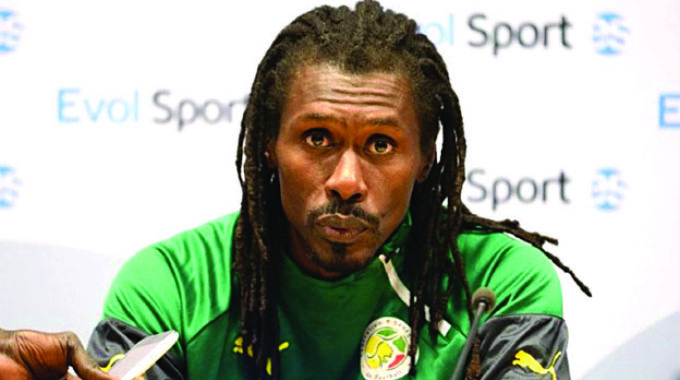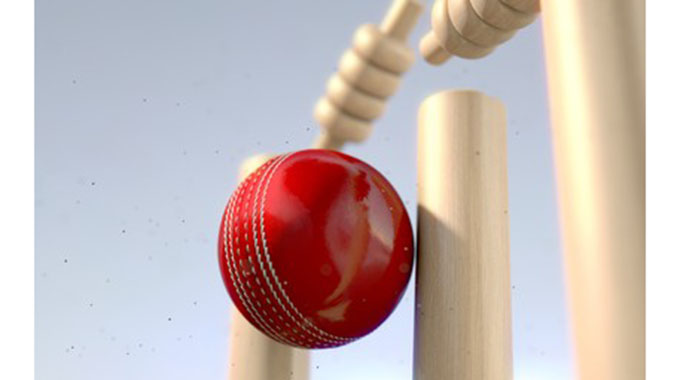Local is lekker! . . . Four African coaches storm into 2022 Qatar World Cup

Eddie Chikamhi-Senior Sports Reporter
AFRICAN nations yesterday woke up to the sobering truth that the continent should start believing and investing more in their own technical personnel after four local football coaches achieved success by qualifying their national teams to the 2022 FIFA World Cup set for Qatar.
Ghana’s Otto Addo, Aliou Cisse (Senegal), Rigobert Song (Cameroon) and Jalel Kadri (Tunisia) took it upon themselves to dispel the widespread belief that African coaches lack the superior qualities to be entrusted with the huge responsibility.

Rigobert Song
Bosnian coach Vahid Halilhodzic is the only non-African gaffer to head to the World Cup from the continent after he led Morocco to victory over the Democratic Republic of Congo in their final qualifier.
DR Congo were under the tutelage of Argentinian Hector Cuper, who had previously guided Egypt to the 2018 World Cup in Russia.
For many years, African nations have had to outsource technical expertise from abroad with relative success.
But this time around, many African nations had the nerve to turn to their own sons and the move has apparently paid the dividends.
If nothing spectacular happens between now and November, when the World Cup tournament is scheduled to kick off, the number of African coaches at the tournament is set to double.
There were only two African coaches out of 32 at the previous World Cup in Russia.
Senegal’s Cisse, who is set for a second dance as coach, was one of the two, along with Tunisian Nabil Maaloul.

Jalel Kadri (Tunisia)
Cisse, who was part of the trailblazing Senegal side that reached the quarter-finals of the World Cup on their first attempt in 2002, is also now a poster boy for a growing stable of African coaches at the top of the continent’s game after years of jobs being dominated by expatriates from Europe.
But the journey has not been easy as he had to rise from undue criticism and lack of belief among his own.
“I think this man deserves all the success he gets because he is the most criticised coach I have ever seen in my life, but he never gives up.
“We would like to win for our country and for him because he deserves it after everything he has been through as a player and now as a coach,” said Senegal and Liverpool forward Sadio Mane in support of his coach during the recent AFCON tournament.
Mane’s comment was partly in response to the domestic criticism that local coaches often endure, mostly from their own peers.
This is the mentality that has permeated African football for a long time. Locals often tear each other apart and always been plotting one another’s downfall instead of rendering support.
Football associations across the board have been guilty of ill-treating and underpaying the local coaches, compared to what they are prepared to offer to the expatriates.
But Cisse has now managed to silence for good even his most vocal critics, including ex-team mate El Hadji Diouf who had said three years ago: “This (Senegal) team has the ability to win an Africa Cup of Nations, but that cannot be achieved if Aliou Cissé remains at the helm of the national team”.
And, just like in the 2021 Cup of Nations final that was decided by shoot-outs, Senegal were on Tuesday night presented with a curious repeat of the drama against the same opponents — Egypt — after the teams were deadlocked 1-1 aggregate.
Mane slotted home the winning penalty. But his Liverpool teammate Mo Salah, marked out of the game for long periods of the second leg by Saliou Ciss, struck his spot-kick over the bar.
And Cisse’s men proceeded to celebrate the West African nation’s third-ever World Cup qualification in style, while the Pharaohs, who were under the tutelage of Mozambican-Portuguese coach Carlos Queiroz, missed out on a second successive appearance on football’s biggest stage.
Former Ghana player Addo helped the Black Stars claim a berth at the World Cup after an eight-year absence by holding Nigeria to a 1-1 draw in Abuja. The first leg had ended 0-0.

Otto Addo (Ghana)
Addo, a member of Ghana 2006 World Cup squad, took to the helm of the team in February this year following Ghana’s shambolic performance at the 2021 Africa Cup of Nations in Cameroon under Serbian Milovan Rajevac.
This is the fourth time Ghana will be making an appearance at the global football event, having previously been there in 2006, 2010 and 2014.
Then Cameroon hit a new record of World Cup qualifications when they sealed their eighth appearance with a dramatic victory over Algeria.
The Cameroonians, who had lost the first leg 0-1 at home, turned it around with 2-1 away win and progressed on away goals rule.
Their coach Song only took up the reins of the Indomitable Lions at the end of February after replacing Portuguese Antonio Conceiçao, who had led the team to a third place finish at the recent AFCON tournament which they hosted.
With support from the Cameroonian Football Federation, now led by ex-teammate Samuel Eto’o, it appears he has settled in quickly.










Comments